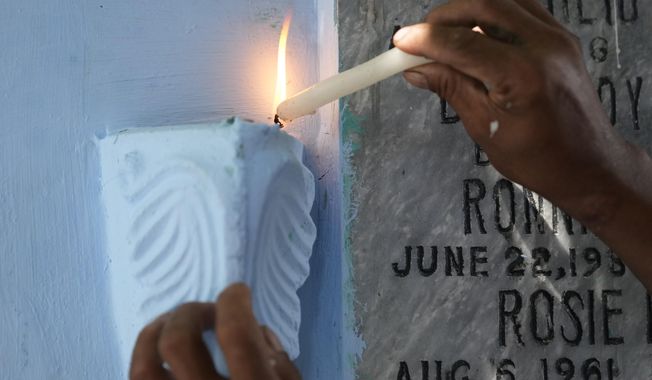
In this Dec. 22, 2016 photo, Dieusel Gerlin, a"bayakou", or waste cleaner, uses candles for illumination before descending into the pit of an outhouse, in Port-au-Prince, Haiti. Bayakou strip off their clothes, wrap themselves in rags and plug their nostrils with tobacco to hide the stench, before they squeeze themselves into the latrine pit to scoop buckets of human excrement with their bare hands. The Bayakou form the lowest ranks of a primitive sanitation system largely responsible for the fierce persistence of cholera in this country since it was introduced to the country’s largest river in October 2010 by sewage from a base of United Nations peacekeepers. (AP Photo/Dieu Nalio Chery)
Featured Photo Galleries


Trump Transition: Here are the people Trump has picked for key positions so far
President-elect Donald Trump has announced a flurry of picks for his incoming administration. Get full coverage of the Trump transition from The Washingon Times.

Trump dances onstage, takes post-election nation by storm
President-elect Trump dances onstage











